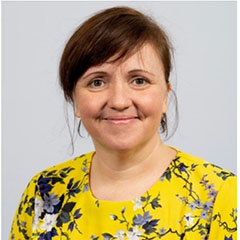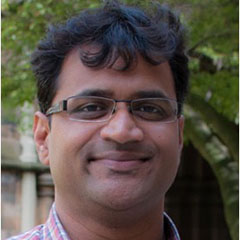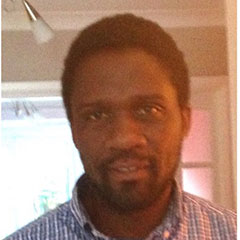Genomics and Clinical Virology 2025
2–7 March 2025
Wellcome Genome Campus, UK
Master cutting-edge genomics and bioinformatics approaches to advance viral diagnostics and investigation
Course Summary
The use of next-generation sequencing (NGS) has revolutionised the diagnosis and management of viral infections. Currently, clinical virology laboratories can perform whole genome sequencing and screening of hundreds of virus-infected samples within hours, enabling real-time genomics for diagnostics, transmission investigation, and infection control.
What will this course cover?
The course combines hands-on laboratory work with expert-led lectures focusing on cutting-edge NGS viral genome sequencing and analysis techniques. Participants will learn to prepare sequencing libraries using advanced methods like target enrichment and long-read technologies. The course offers practical training in bioinformatics, including the Linux/UNIX command line. It covers key aspects such as data quality control, reference mapping, de novo assembly of viral genomes, and phylogenetic analysis. Real-world case studies will highlight NGS’s practical applications and challenges in clinical settings.
Who should attend this course?
This course is designed for virology researchers at the PhD, postdoc, or senior levels who are interested in mastering NGS of viral genomes. It’s also aimed at clinical virology and research scientists planning to implement NGS in diagnostic laboratories, offering essential insights into the latest genomic techniques and their future applications.
CPD Accreditation
The course is approved annually for CPD accreditation by the Royal College of Pathologists (46 credits in 2024)
Bursaries
Available for clinical and academic applicants from anywhere in the world to attend this course. Please see the “Cost and financial support” tab below for more information.
Learning outcomes
What will you achieve?
After attending this course, you will be able to:
- Conduct the full NGS process, from sample processing to bioinformatics analysis of patient-derived viral samples.
- Prepare and optimise sequencing libraries to improve output efficiency.
- Apply Linux/UNIX command line tools in analysis pipelines for whole viral genome and pathogen identification.
- Critically evaluate the limitations and potential applications of NGS in clinical viral diagnostics.
- Use phylogenetic analysis to identify transmission patterns and inform intervention strategies.
Programme
This residential course will start at approximately 12.00 on Sunday 2 March 2025 and close at approximately 17:00 on Friday 7 March 2025. All times are in GMT.
The course will cover:
- Overview: high-throughput sequencing and viral sequencing approaches.
- Library preparation: techniques for metagenomics and target enrichment, including probe-based and PCR-based methods.
- Bioinformatics analyses: tools and pipelines to data quality control, viral genome assembly, consensus and variant calling, metagenomics, multiple sequence alignment, and phylogenetic inference.
- Case studies: tailored sequencing approaches and bioinformatics pipelines for specific scenarios.
- Validation and accreditation: ensuring the reliability and standardisation of viral whole genome sequencing in diagnostic services.
- Group project: apply course concepts to solve real-world challenges.
Instructors and speakers
Organisers

Emma Thomson
MRC Centre for Virus Research, University of Glasgow, UK

Nick Loman
Institute for Microbiology and Infection, University of Birmingham, UK

Sreenu Vattipally
MRC Centre for Virus Research, University of Glasgow, UK

Tamyo Mbisa
Antiviral Unit, UK Health Security Agency, UK
Instructors and assistants
Ana da Silva Felipe
University of Glasgow, UK
Charolotte Williams
University College London, UK
David Bibby
UK Health Security Agency, UK
Dulcibela Boampong
UK Health Security Agency, UK
Kathy Smollett
University of Glasgow, UK
Lilly Tong
University of Glasgow, UK
Richard Orton
University of Glasgow
Sarah Buddle
University College London, UK
Sunando Roy
University College London, UK
Wellcome Connecting Science - Learning and Training
Aaron Dean
Laboratory Technical Officer
Alice Matimba
Head of Training and Global Capacity
Cassandra Soo
Laboratory Manager
Christopher Adamson
Laboratory Operations Officer
Karon Chappell
Events Organiser
Liã Bárbara Arruda
Education Developer
Martin Aslett
Informatics Manager
Vaishnavi Vikas Gangadhar
Informatics Technical Officer
How to apply
Pre-requisites:
Bioinformatic training will include the use of Linux/UNIX command line. Though participants learn to use the command line during the course, familiarity with these resources is recommended. There are numerous online introductory tutorials to the Linux/UNIX operating system and command line. ‘Introduction to Linux for biologists’ pre-course material will be provided. Other suggested materials:
http://www.ee.surrey.ac.uk/Teaching/Unix
http://swcarpentry.github.io/shell-novice/
How to Apply
- Start the application
- Click on the “Apply” button above to start your application. Please note that places are limited and will be awarded based on merit.
- Demonstrate the course’s relevance to your project/role
- Our courses are highly subscribed, so it is essential to clearly show how the skills you will learn in the course will be directly applicable and beneficial to your current role/project and how do you plan to disseminate the knowledge after the course.
- Preference will be given to applicants who are currently working on related projects or soon will be.
- Letter of recommendation
- Applications must be supported by a recommendation from a scientific or clinical sponsor (e.g., supervisor, line manager, or head of department). Ensure that your sponsor provides a tailored supporting statement by the application deadline. This statement must be uploaded as a PDF document to the registration system within your application. Applications without a supporting statement will not be considered.
- Need help?
- If you encounter any problems with the online application process, please contact us courses@wellcomeconnectingscience.org for assistance.
Application deadline: 19 November 2024
Travel visas
Citizens of many countries can travel to the UK to attend a course or conference without needing a visa. Please check the UK government website for visitor information: https://www.gov.uk/standard-visitor.
Confirmed attendees requiring a letter to support a visa application should contact us courses@wellcomeconnectingscience.org.
Cost and financial assistance
| Cost | Accommodation / meals | |
| *Course fee | £ 1,062 | includes accommodation and all meals |
*The course fee is subsidised by Wellcome Connecting Science. Contact us courses@wellcomeconnectingscience.org for the commercial rate.
The fee will be requested once acceptance is confirmed.
Bursaries
Limited bursaries are available (up to 50% reduction on the course fee) and are awarded on merit. If you would like to apply for a bursary, please complete the bursary section of the online application form, explaining why you would benefit from funding.
Bursaries can be applied for as part of the course application form. Applicants will be notified of a bursary award along with their place on the course, usually within one month of the application deadline. The decision of the selection committee is final.
Please note that both the applicant and sponsor are required to provide a justification for the bursary as part of the application.
Deadline: 19 November 2024
Additional funding opportunities
Visit our support page for additional financial support currently available.
Extra accommodation
If you wish to book onsite accommodation either side of the course dates, please contact Hinxton Hall Conference Centre directly.
Accommodation services phishing scam – please be vigilant. More information.
Testimonials
Feedback from 2024 Genomics and Clinical Virology course:
“Tutorial style teaching and troubleshooting is really great! Super informative and instructors are all so lovely and patient! Everything went so smooth, not only the course itself but also networking events, food, accommodation etc Feel super lucky to be on the course”
“The instruction we received was truly phenomenal, and very good in a step-by-step manner that made it accessible for many levels of experience”
“The seminars were really engaging. I looked forward to capture enrichment, metagenomics and data analyses. My expectations were met.”
“I thought it would move too fast a pace for me and I would get lost, but there was plenty of time and support from the course instructors to do/understand.”

